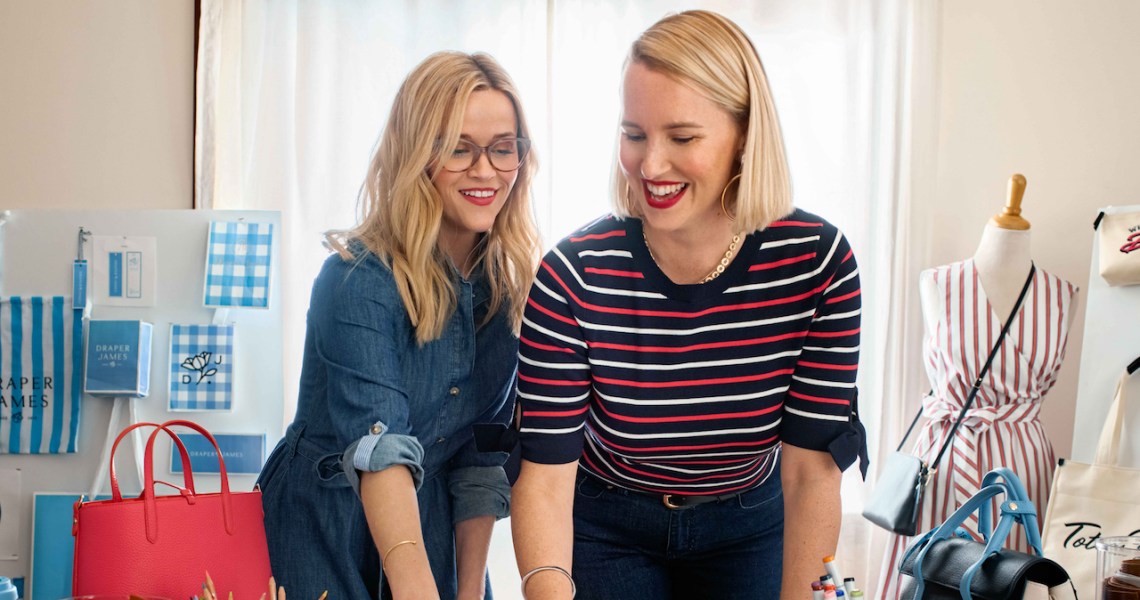The consolidation in the apparel retail market continued this week as Draper James, the lifestyle brand founded by actress Reese Witherspoon, was acquired by Consortium Brand Partners.
CBP, a private equity firm with founders who have worked with consumer brands like Martha Stewart, is taking a controlling, 70% stake in the company. Meanwhile, Draper James’ existing leadership, including CEO Erin Moennich and Witherspoon, will remain in place. The terms of the deal, announced on Wednesday, were undisclosed.
But according to Jonathan Greller, co-founder and president of CBP, there are some changes planned for the brand. For one, Draper James will likely expand into new categories like gardening and food and beverage. He also sees potential for international expansion, particularly in markets including Australia and Mexico. Draper James currently only has stores, both owned and wholesale, in the U.S.
“We look for brands that have a strong ethos, that are authentic,” Greller said. “Draper James already has this strong community, and we wanted to work with Reese and continue what she’s been doing with the brand.”
Greller said Draper James will continue to expand beyond its DTC roots. An existing wholesale partnership with Kohl’s, which began in 2022 and extends to 500 stores, will continue, and more wholesale partnerships will spring up in the future in categories that don’t compete with Kohl’s apparel. Additionally, the international expansion will be driven by finding wholesale partners in other markets, Greller said.
The acquisition represents yet another part of the larger shift toward consolidation that has happened in the fashion retail space, particularly for direct-to-consumer brands. The last two years have seen a number of DTC brands being purchased by larger companies and expanding beyond the confines of the DTC realm. That includes Adore Me, purchased by Victoria’s Secret in November, and Parade, which was acquired by a larger underwear licensing company in August. Meanwhile, Universal Standard acquired the plus-size brand Henning, and Express bought Bonobos in April.
As DTC operation costs, especially digital marketing, have skyrocketed, smaller DTC brands are increasingly looking toward the resources that larger companies can provide to scale in more traditional ways like wholesale.
But acquisitions don’t always lead to new growth. The Bonobos acquisition put pressure on Express’s bottom line, harming both companies and putting Express at risk of being delisted from the NYSE, for example. Private equity firms acquiring brands, in particular, have a reputation for leaving the acquired brand as a husk of its former self and escaping with the profits.
“Retail has always been a dynamic sector, but with the rise of e-commerce and DTC brands, competition has intensified,” said Birk Cooper, CMO of the rewards app Fetch. “As more players have entered the market, consolidation has become a strategic move that allows brands to gain a competitive edge, expand market share and eliminate rivals.”
He added, “For companies like Consortium Brand Partners, bringing a smaller brand into their fold provides an opportunity to diversify their portfolio, reducing risks while leveraging the unique expertise of smaller brands.”
Unlike private equity firms that purchase companies with little regard for what kind of business they’re running, Greller said CBP has a focus on consumer retail and is invested in the long-term health of Draper James.
“Between Cory [M. Baker] and Michael [DeVirgilio, co-founders of CBP] and myself, we have over 90 years of experience in consumer retail,” Greller said. “We have a lot of resources, we have a lot of partners, we have a lot of knowledge of how this business works. We’ll be able to help this brand reach new heights.”




